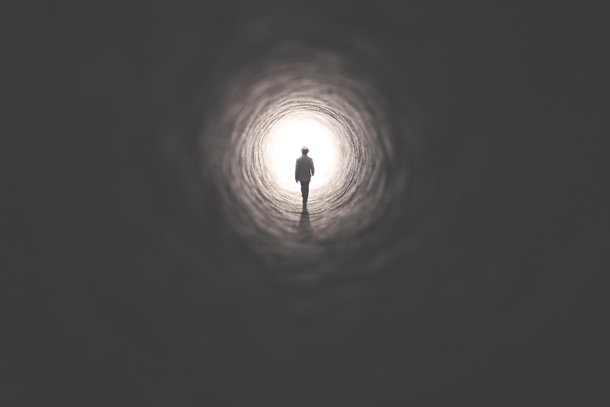There is no greater mystery than death. We all have some kind of curiosity about what we will feel when our life is ending – and this is probably the main reason for the fear we have of this moment.
Scientists also wonder on the subject and have already made some discoveries. One of the ways to investigate the issue is through so-called near-death experiences (NDEs). The earliest medical account of such an experience dates from the 18th century, and was made by a French apothecary who lost consciousness during bloodletting. When he woke up, he said he saw “a light so pure and extreme that he thought he was in heaven”.
But this type of report – from people who say they have seen light, looked at their body from the outside or felt peace – started to be relatively common, making science want to take it a step further.
Also read: Who ‘dies instantly’ in an accident knows they died?
The feeling of being close to death
 (Source: Getty Images)
(Source: Getty Images)
One of the prominent names in this type of investigation is the British physician Sam Parnia, who coordinates an organization that studies cases in which patients have cardiopulmonary resuscitation. Together with his colleagues, he carried out more objective research: he interviewed 63 people who were resuscitated after a cardiac arrest.
The study found that 7 of these 63 patients were able to recall thoughts they had when they were unconscious. The reports generally involved positive memories. But the doctors noticed something interesting: those who were able to recall the experience had the highest levels of oxygen in their blood, which disproved the initial hypothesis that these visions resulted from a lack of oxygen in the brain.
The first conclusion of this investigation is that death from cardiac arrest was not felt as something painful – most of the reports talked about reassuring feelings, which would not justify the fear prior to this moment.
The final moments before death
Research on NDEs often coincides with this report on the absence of pain. It is also known in which order the senses usually cease: first, hunger and thirst end, followed by speech and vision.
Hearing and touch last longer, the which indicates that many people can hear and feel their relatives at these times, even if they appear to be unconscious. As death gets closer, the heart beats less, blood pressure drops, skin cools and nails darken. The internal organs begin to have difficulty functioning. Then the breathing becomes shallower and faster. Eventually, it starts to pause, until it stops. Minutes later, the heart stops beating and the brain runs out of oxygen.
As morbid or dismal as this knowledge may seem, it is important, since we are a society that tends to deny the existence of death and avoid talking about it. Knowing more about this can help us understand what we share with relatives whose lives are coming to an end and even gain some peace of mind about our own death.
Also read: What’s it like to be shot in the head? Survivors tell what they felt









